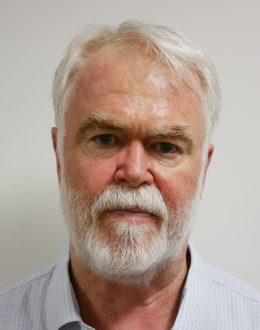
John Makeham
Professor John Makeham
Professor Emeritus at both La Trobe University and The Australian National University
Fellow of the Australian Academy of the Humanities
John Makeham is Professor Emeritus at both La Trobe University and The Australian National University, and a Fellow of the Australian Academy of the Humanities. He has also held academic positions and visiting professorships at the University of Adelaide, Chinese University of Hong Kong, National Taiwan University, and Victoria University of Wellington. His research specialization is in the intellectual history of Chinese philosophy. He has a particular interest in Confucian thought throughout Chinese history and in the role played by Sinitic Buddhist thought as an intellectual resource in pre-modern and modern Confucian philosophy. He is series editor of the Brill book series, Modern Chinese Philosophy, and one of the editors of the new Brill book series, East Asian Buddhist Philosophy. He is recipient of the Joseph Levenson Book Prize (2005) and the China Special Book Award (中華圖書特別貢獻獎) (2015) and past President of the Australasian Society for Asian and Comparative Philosophy (1994-1996) and the Chinese Studies Association of Australia (2017-2019).
John Makeham’s publications include: Name and Actuality in Early Chinese Thought (1994); Transmitters and Creators: Chinese Commentators and Commentaries on the Analects (2003); and Lost Soul: “Confucianism” in Contemporary Chinese Academic Discourse (2008). He has edited New Confucianism: A Critical Examination (2003); China: The World’s Oldest Civilization Revealed (2008); Dao Companion to Neo-Confucian Philosophy (2010); Learning to Emulate the Wise: The Genesis of Chinese Philosophy as an Academic Discipline in Twentieth-century China (2012); Transforming Consciousness: Yogācāra Thought in Modern China (2014); Learning from the Other: Australian and Chinese Perspectives on Philosophy (2016); The Buddhist Roots of Zhu Xi’s Philosophical Thought, (2018); and with A-chin Hsiau co-edited Cultural, Ethnic, and Political Nationalism in Contemporary Taiwan: Bentuhua (2005). Annotated translations include: Balanced Discourses: An Annotated Translation of Xu Gan’s (170-217) Zhonglun (2002); New Treatise on the Uniqueness of Consciousness: An Annotated Translation (2015); and with John Jorgensen, Dan Lusthaus and Mark Strange, Treatise on Awakening Mahāyāna Faith (2019).
Xiong Shili and Zhu Xi on the Origin of Moral Badness

Please register by 5pm, 13 November 2020 to attend the public lecture.
Abstract:
Xiong Shili 熊十力 (1885–1968) is one of the most important Chinese philosophers of the twentieth-century and widely recognized as a founding figure of the modern “New Confucian” philosophy. Zhu Xi 朱熹 (1130–1200) is arguably the most important Chinese philosopher of the past millennium, both in terms of his influence and legacy and for the sophistication of the systematic “Neo-Confucian” philosophy he developed.
In this lecture I will compare Xiong Shili’s and Zhu Xi’s respective theoretical approaches to the problem of the origin of moral badness. The lecture focuses on Xiong’s 1959 book, Ming xin pian 明心篇 (Explaining the Mind), in which he used the concepts of the nature (xing 性) and the mind (xin 心) to explain the origin of moral badness. I will argue that Xiong’s and Zhu Xi’s approaches to the problem are isomorphic. This isomorphism is significant because it suggests that Xiong consciously drew on Zhu Xi and the Buddhist models that Zhu in turn drew on, in particular those in the sixth century Buddhist text, the Treatise on Awakening Mahāyāna Faith (Dasheng qixin lun 大乘起信論). The final part of the lecture will argue that Xiong was not satisfied merely to adapt Zhu Xi’s views but also sought to overcome some of their theoretical shortcomings.
Xiong Shili’s Ti-Yong Metaphysics and the Treatise on Awakening Mahāyāna Faith’s “One Mind, Two Gateways” Paradigm

Please register by 5pm, 27 November 2020 to attend the seminar.
Abstract:
Xiong Shili 熊十力 (1885-1968) was very much heir to a body of philosophical traditions, in which the ti-yong polarity featured centrally in repeated attempts, since at least the fifth century, to answer the question, “How can the unconditioned (the absolute, suchness, principle) be realized if our cognitive awareness is circumscribed by the conditioned nature of human existence?” The focus of this seminar presentation is on how Xiong drew on Huayan, and later on Tiantai, philosophical resources to articulate changing formulations and refinements of his signature metaphysical doctrine of the “non-duality of ti and yong” (體用不二). The period covered spans the 1930s to the early 1960s. These resources were grounded in accounts of the relationship between li 理 and shi 事, which, in turn, were philosophical responses to and developments of the account of the relationship between the unconditioned and the conditioned in the Treatise on Awakening Mahāyāna Faith (Dasheng qixin lun 大乘起信論), as encapsulated in its “one mind, two gateways” (一心二門) model.
The first part of this presentation will establish the connection between Xiong’s pre-1950 account of the non-duality of ti and yong thesis and the Huayan doctrine of the non-obstruction of li and phenomena (理事無礙). In the 1950s, Xiong’s ontological views changed substantially. The second part will seek to show how Xiong’s late 1950s-early 1960s account of the non-duality of ti and yong thesis is theoretically grounded in Tiantai accounts of ti-yong.




